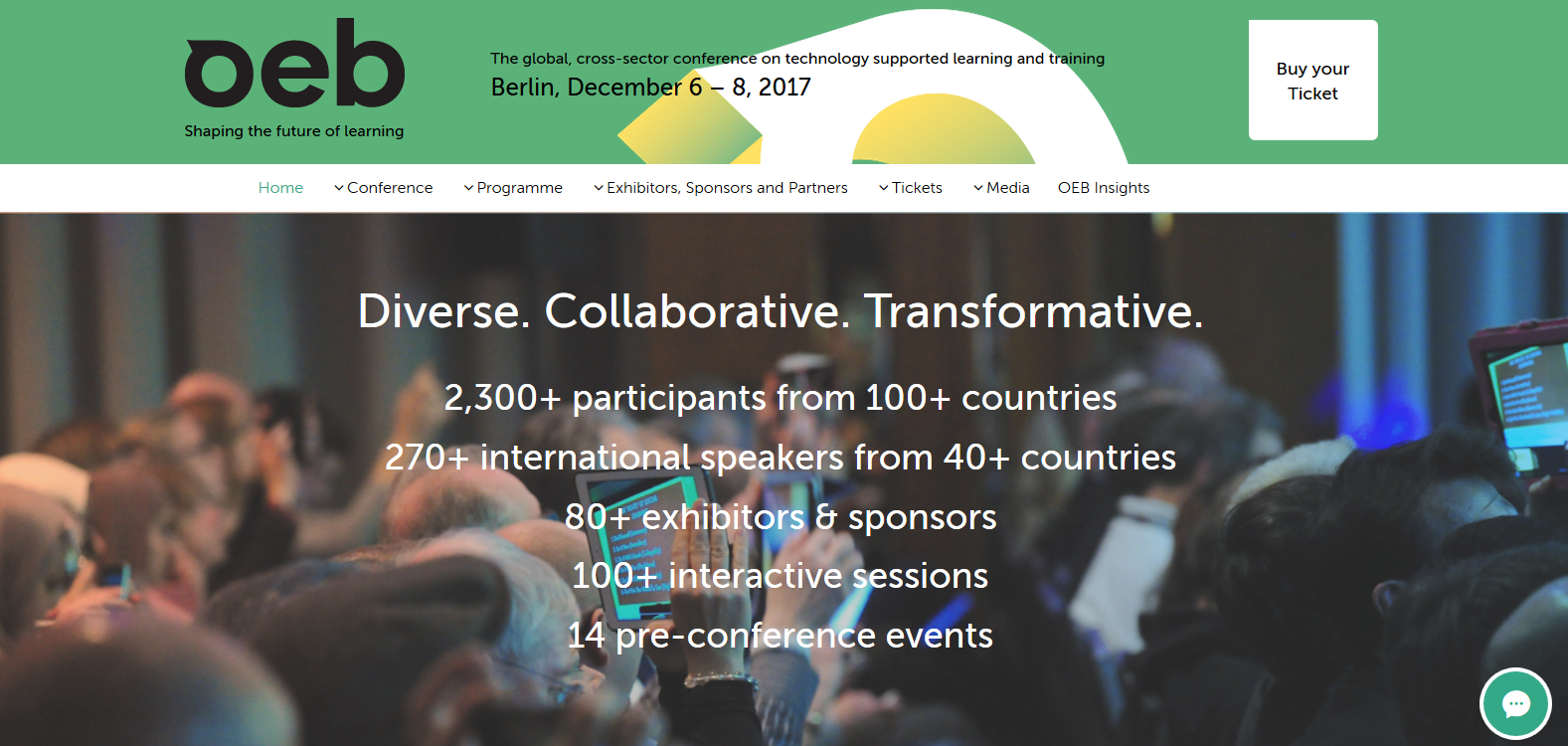
OEB Global 2017: Call for “More Flexible Education Systems” and Training for Teachers
Education systems will need to be much more flexible, in order to cope with the demands of an age of increasing uncertainty. And teachers must be trained not only to teach, but also to redesign their institutions to keep up with the pace of change in society. These are just two of the recommendations set to be made by education and technology experts, taking part in OEB Global 2017, Europe’s largest conference on technology assisted learning and training.
The theme of OEB Global 2017 is ‘learning uncertainty’ and the conference will focus on how the increasing pace of technological change is likely to affect education, the workplace and society. In the opening plenary session on 7 December, speakers will discuss issues, ranging from the effect of increasing uncertainty on education to the introduction of more collaborative forms of learning and the implications of greater longevity.
Finnish teacher, author and senior policy adviser Pasi Sahlberg is convinced that the new age of uncertainty is going to force educators and employers to make some big changes:
“If I am right that many of the developments in this world will be unpredictable... the best bet would be to make sure that education systems are designed in flexible ways, so that they can react rapidly to new situations. This would require better trained professionals..., who would be not only masters in teaching students but also experts in understanding how to design and redesign... as the world around them changes.”
“Personally, I would like to see future education emphasising more than previously real teamwork, leadership, ethics and empathy... My bet is also that we will soon need to rethink how to make sure that all children will learn to read (books), write (letters) and communicate (face to face), as these really are the eternal and timeless human skills that we need more now in the 4th industrial revolution and the era of post-truth than before.”
Other speakers in the session, which will be chaired by broadcast journalist Nik Gowing, will be former Washington Post health correspondent and age campaigner Abigail Trafford and social psychologist and broadcaster Aleks Krotoski.
Ms Trafford also emphasises the need for greater flexibility, as a means of dealing with increasing demands resulting from greater longevity, together with significant shifts in labour markets and traditional patterns of employment.
“We are in the midst of a demographic revolution...” she says. “We haven’t figured out what to do with a healthy population. I may not know the answer but what I’m sure about, though, is it will be something to do with learning... Work will be less regimented. There will be more episodic work and more flexibility. How exactly the workplace will have to shift is still a work in progress, though.”
Trafford is full of hope for the future, in spite of her concerns about the demographic revolution.
“The combination of an ageing society and the rise of artificial intelligence is full of hope. And there’s a great deal of talent to be tapped...”
Aleks Krotoski agrees. She sees the new age of uncertainty as a positive development.
“I think we need to sit in and wallow in our uncertainty because it gives us those edges, forces us to face the boundaries with which we are uncomfortable... The new way of playing with uncertainty is recognising that what is written down is not immutable and can constantly change until the next agreed-upon consensus arrives and we can move forward.”
For more information about OEB Global 2017, which will be held at the InterContinetal Hotel in Berlin from 6 – 8 December 2017, please visit the conference website at www.oeb.global.


